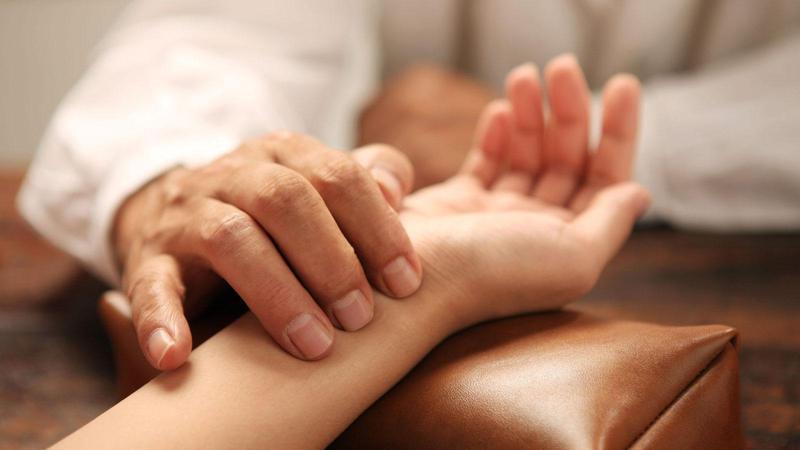This Ancient Medical System Cannot Offer A Superficial Relief — It Gets to the Bottom of Health Issues
This Ancient Medical System Cannot Offer A Superficial Relief — It Gets to the Bottom of Health Issues
The year was 1986, and the Chicago Bears were preparing for the Super Bowl. But their star quarterback, the outspoken Jim McMahon, had a left buttock and hip bruise that hampered his throwing and running.
Nothing had improved his condition suffered from the NFC championship game prior to the Super Bowl. Then he was treated by a Japanese acupuncturist who was specializing in world class athletes’ sports injuries with great success.
Jim’s recovery was swift and he led the Bears to a Super Bowl victory over the New England Patriots. The wryly colorful McMahon was frequently interviewed about his treatment at that time.
He consistently asserted that the acupuncturist, introduced to him by teammate wide receiver Willie Gault, did stick him with needles that effectively healed his injury. This highly media covered episode may have contributed somewhat to a surge of acupuncture popularity in this country.
Traditional Chinese Medicine (TCM) has had energetic medicine and treatment thoroughly explored for centuries. Western medical research has only just begun to look into how subtle energies affect our health. Even so, modern Western medicine tends to rely heavily on expensive equipment for both diagnosis and treatment, while TCM does not.
That translates to lower expense and cost. Yet, most western disease treatment insurance coverage won’t cover TCM. Sick cost coverage, no matter what type, traps most in the medical mafia matrix, probably by design.
Here are a few TCM basics with a tip on how to take advantage of TCM on a budget.
Traditional Chinese Medicine 101
The whole language and energetic systemic approach of TCM is different from Western medicine’s biological and biochemical systems approach. Basic to TCM is the notion of healing the body’s subtle energies is creating balance and harmony with all organs while retaining them.
The practice of removing organs to cure disease is repugnant to TCM practitioners. They work on restoring an organ’s qi, or chi (pronounced “chee”). TCM even relates organ deficiencies to specific chronic emotions or psychological dispositions.
Qi is a subtle energy that operates organs and cells. Stagnant or blocked qi must be addressed to restore strong and balanced qi energies. Mainstream medicine’s expensive technology isn’t subtle enough to recognize it, but TCM recognizes three basic types of qi perceived without Western medical equipment.
We are born with ancestral qi. That’s our foundation energy, a wellspring which is sometimes tapped into or eroded over time. Then there’s postnatal qi, that which we obtain from our diet, exercise and environment. There’s also protective qi that flows around the body at the surface. So qi is essential for the body’s operation and homeostasis. Each organ has its own qi as well.
Most are familiar with the terms yin and yang, female and male aspects of universal creation, which are also reflected in all qi energies. Earthly elements such as wood, heat, cold and dampness are among the concepts used in diagnosis without expensive machinery.
Consultations may involve lifestyle questions, but TCM practitioners rely on pulse readings well beyond determining its rate. This is an art that enables an experienced practitioner to detect even currently sub-clinical future health problems.
Examining features of the tongue with body functional implications that most of us are unaware of is another aspect of inexpensive TCM diagnosis
TCM recognizes digestion as the root of good or bad health, another aspect of health that has only recently been probed slightly in the West. The two treatment modalities of TCM are herbs and acupuncture.
Lately, there have been many studies on how well TCM herbs and acupuncture work for serious diseases, even cancer. The purpose of TCM trials and studies is to prove TCM’s efficacy to an arrogant medical system that pooh-poohs less expensive, less toxic yet efficacious healing approaches.
The herbs are tried and true and have been for centuries. But it’s only recently that Chinese herbs have undergone Western medicine’s style of testing and unnecessary epidemiological study. TCM is empirically proven with non-toxic herbs. The long road for testing pharmaceuticals is often to determine toxicity levels that often still manage to slip through.
Acupuncture streamlines treatments for any health issues one has. Qi (chi) pathways have been mapped out on the human body over the millennia. Acupuncture needle placements adjust, direct, and/or unblock those meridians to balance, moderate and free qi energy throughout the body.
For serious physical traumas and other sudden overwhelming emergencies, Western allopathic medicine is tops. But let’s not confuse those extreme situation interventions with healthcare protection and disease curing. TCM is a holistic healing modality for complete health, disease prevention and disease recovery.
Although acupuncture is more popular, complete TCM involves both herbs and acupuncture. If you can’t afford regular TCM treatments, which aren’t usually covered by insurance, there are TCM schools and a national group known as Peoples’ Organization of Community Accupuncture (POCA) that offer sliding scale fees. Look here to see what’s available where you live.
Be the first to post a message!
